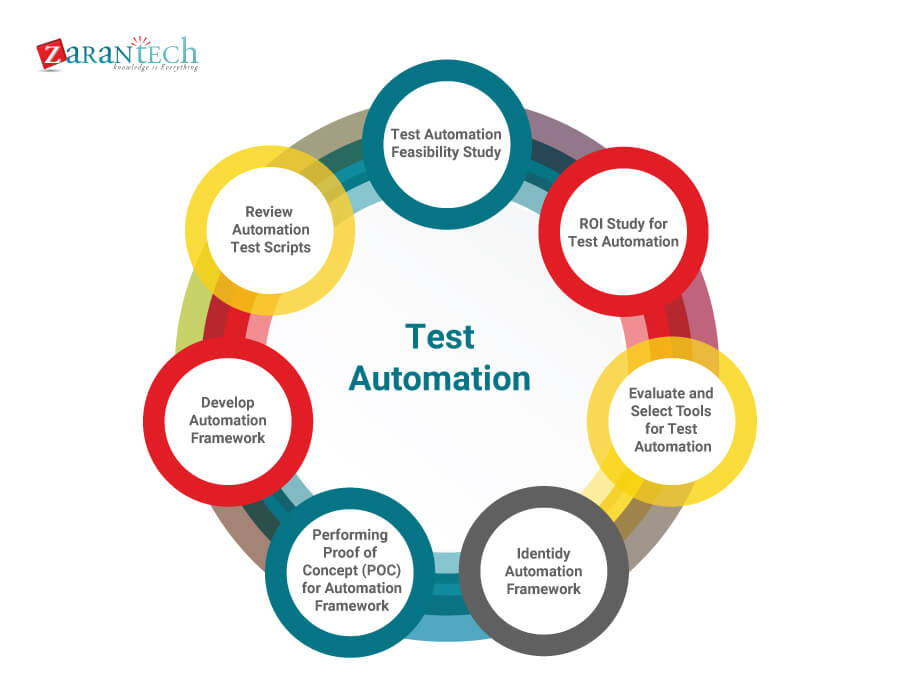Benefits of Automation Testing
In today’s fast-paced digital world, software development and testing have become critical for businesses to thrive. Automation testing is a powerful tool that can significantly enhance the efficiency and effectiveness of the testing process. In this article, we will explore the numerous benefits of automation testing and how it can help businesses achieve their goals.
Improved Efficiency
One of the primary advantages of automation testing is improved efficiency. Manual testing can be time-consuming and prone to human errors. By automating repetitive and mundane test cases, businesses can save valuable time and resources. Automation testing allows for faster execution of tests, enabling businesses to release high-quality software in a shorter time frame.
Increased Test Coverage
Another key benefit of automation testing is the ability to achieve increased test coverage. With manual testing, it is often challenging to test every possible scenario and combination. Automation testing allows for the creation of comprehensive test suites that can cover a wide range of scenarios, ensuring that critical functionalities are thoroughly tested. This, in turn, reduces the risk of potential issues and improves the overall quality of the software.
Higher Accuracy
Automation testing eliminates the possibility of human errors, thereby significantly improving the accuracy of test results. Test scripts are created with precision and can be executed repeatedly without deviation. This ensures consistent and reliable results, reducing the chances of false positives or false negatives. With higher accuracy, businesses can have greater confidence in the quality of their software.
Cost Savings
While the initial investment in automation testing tools and resources may seem significant, the long-term cost savings outweigh the upfront expenses. Manual testing requires a dedicated team of testers, which can be expensive. Automation testing reduces the reliance on manual efforts, allowing businesses to allocate resources more efficiently. Moreover, automation testing minimizes the risk of costly errors and defects in the production environment, saving both time and money.
Improved Regression Testing
Regression testing is a crucial aspect of software development, ensuring that new changes or updates do not negatively impact existing functionalities. Automation testing excels in regression testing by quickly and accurately running repetitive test cases. It enables businesses to detect any issues or bugs that may arise due to changes in the software. By identifying and fixing problems early on, businesses can maintain a stable and reliable software system.
Enhanced Test Reusability
Automation testing allows for the reusability of test scripts, making it a cost-effective approach in the long run. Once the test scripts are created, they can be reused across different projects or iterations, saving time and effort. This reusability also ensures consistent testing across different versions of the software, enabling businesses to maintain a high level of quality throughout its lifecycle.

Automation testing offers numerous benefits that can greatly improve the software development and testing process. From improved efficiency and increased test coverage to higher accuracy and cost savings, businesses can gain a competitive edge by embracing automation testing. By leveraging automation tools and strategies, businesses can release high-quality software faster, reduce risks, and enhance customer satisfaction. Embracing automation testing is a smart investment for any organization looking to stay ahead in today’s digital landscape.
Frequently Asked Questions about the Benefits of Automation Testing
1. What is automation testing?
Automation testing refers to the use of specialized software tools to execute pre-scripted tests on a software application, comparing the actual results with the expected ones.
2. What are the benefits of automation testing?
Automation testing offers several advantages, including:
Improved test coverage
Increased test efficiency and speed
Reduced human errors
Cost-effectiveness in the long run
Reusability of test scripts
3. How does automation testing improve test coverage?
Automation testing allows for the execution of a large number of test cases in a short period, ensuring comprehensive test coverage across different scenarios and configurations.
4. How does automation testing increase test efficiency and speed?
Automation testing eliminates the need for manual intervention and speeds up the testing process. It can run tests in parallel, perform repetitive tasks quickly, and provide faster feedback on the application’s behavior.
5. How does automation testing reduce human errors?
By automating the testing process, the chances of human errors, such as typos or overlooking test cases, are significantly reduced. Automation tools execute tests precisely as designed, minimizing the risk of human mistakes.
6. Is automation testing cost-effective?
Although automation testing may require an initial investment in tools and resources, it proves cost-effective in the long run. It saves time, effort, and resources by reducing manual testing efforts and catching defects early in the development cycle.
7. Can automation testing be used for all types of testing?
Automation testing is suitable for various types of testing, including functional testing, regression testing, performance testing, and load testing. However, some testing aspects, like usability testing, may still require manual evaluation.
8. Can test scripts be reused in automation testing?
Yes, one of the significant benefits of automation testing is the reusability of test scripts. Once created, test scripts can be reused across different versions of the software, saving time and effort in test maintenance.
9. Does automation testing replace manual testing entirely?
No, automation testing complements manual testing but cannot replace it entirely. Manual testing is still essential for exploratory testing, usability testing, and ensuring a human perspective on the application’s behavior.
10. How should I choose the right automation testing tool?
When selecting an automation testing tool, consider factors like the application’s technology stack, ease of use, reporting capabilities, integration with other tools, and community support. Evaluate multiple options and choose the one that best fits your requirements.




